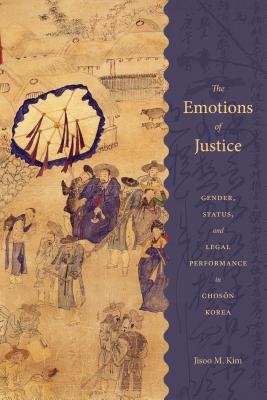
- We will send in 10–14 business days.
- Author: Jisoo M Kim
- Publisher: University of Washington Press
- ISBN-10: 0295995033
- ISBN-13: 9780295995038
- Format: 15.8 x 23.1 x 2.3 cm, hardcover
- Language: English
- SAVE -10% with code: EXTRA
Reviews
Description
The Choson state (1392-1910) is typically portrayed as a rigid society because of its hereditary status system, slavery, and Confucian gender norms. However, The Emotions of Justice reveals a surprisingly complex picture of a judicial system that operated in a contradictory fashion by discriminating against subjects while simultaneously minimizing such discrimination. Jisoo Kim contends that the state's recognition of won, or the sense of being wronged, permitted subjects of different genders or statuses to interact in the legal realm and in doing so illuminates the intersection of law, emotions, and gender in premodern Korea.
EXTRA 10 % discount with code: EXTRA
The promotion ends in 19d.21:07:47
The discount code is valid when purchasing from 10 €. Discounts do not stack.
- Author: Jisoo M Kim
- Publisher: University of Washington Press
- ISBN-10: 0295995033
- ISBN-13: 9780295995038
- Format: 15.8 x 23.1 x 2.3 cm, hardcover
- Language: English English
The Choson state (1392-1910) is typically portrayed as a rigid society because of its hereditary status system, slavery, and Confucian gender norms. However, The Emotions of Justice reveals a surprisingly complex picture of a judicial system that operated in a contradictory fashion by discriminating against subjects while simultaneously minimizing such discrimination. Jisoo Kim contends that the state's recognition of won, or the sense of being wronged, permitted subjects of different genders or statuses to interact in the legal realm and in doing so illuminates the intersection of law, emotions, and gender in premodern Korea.


Reviews